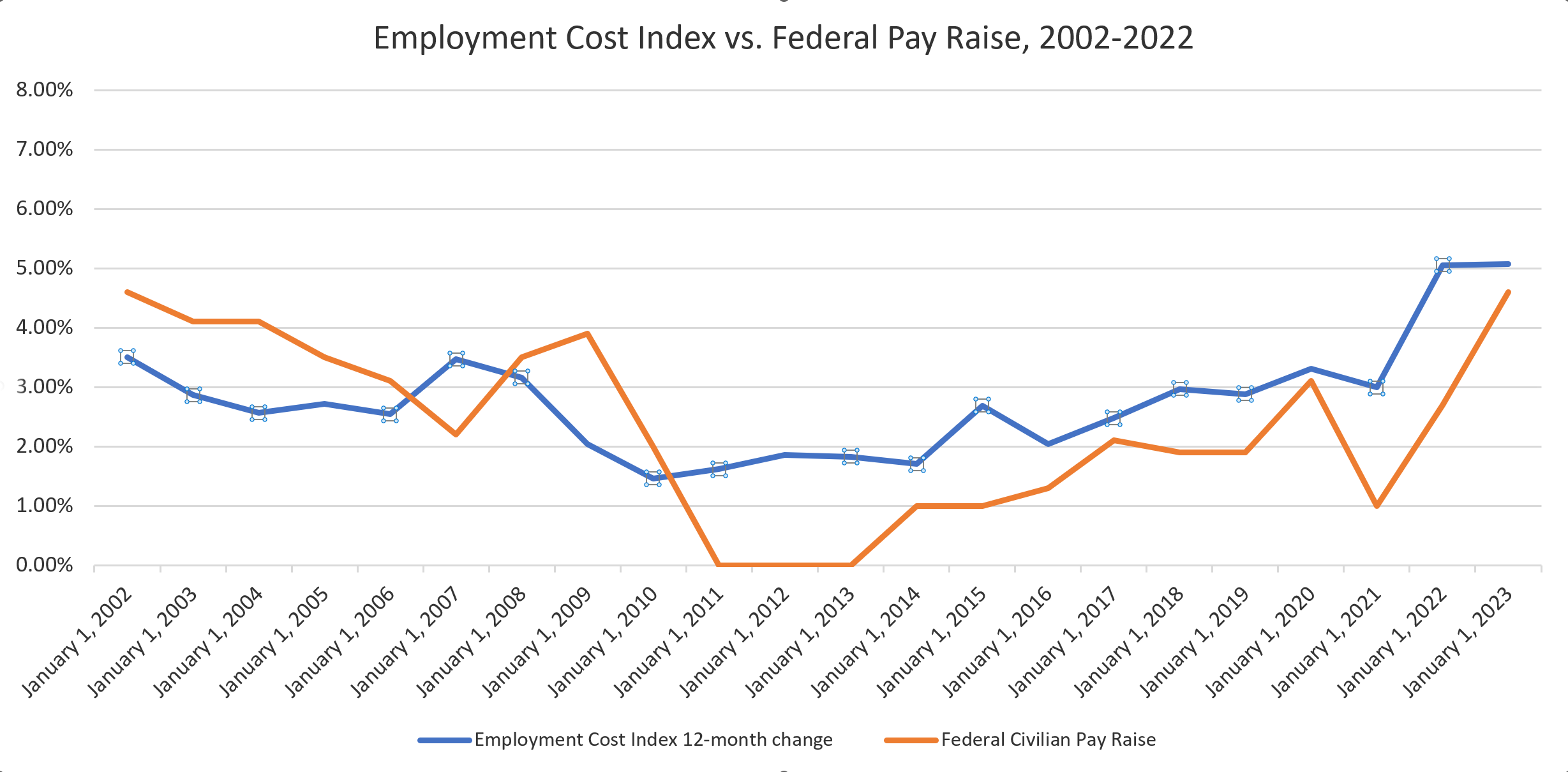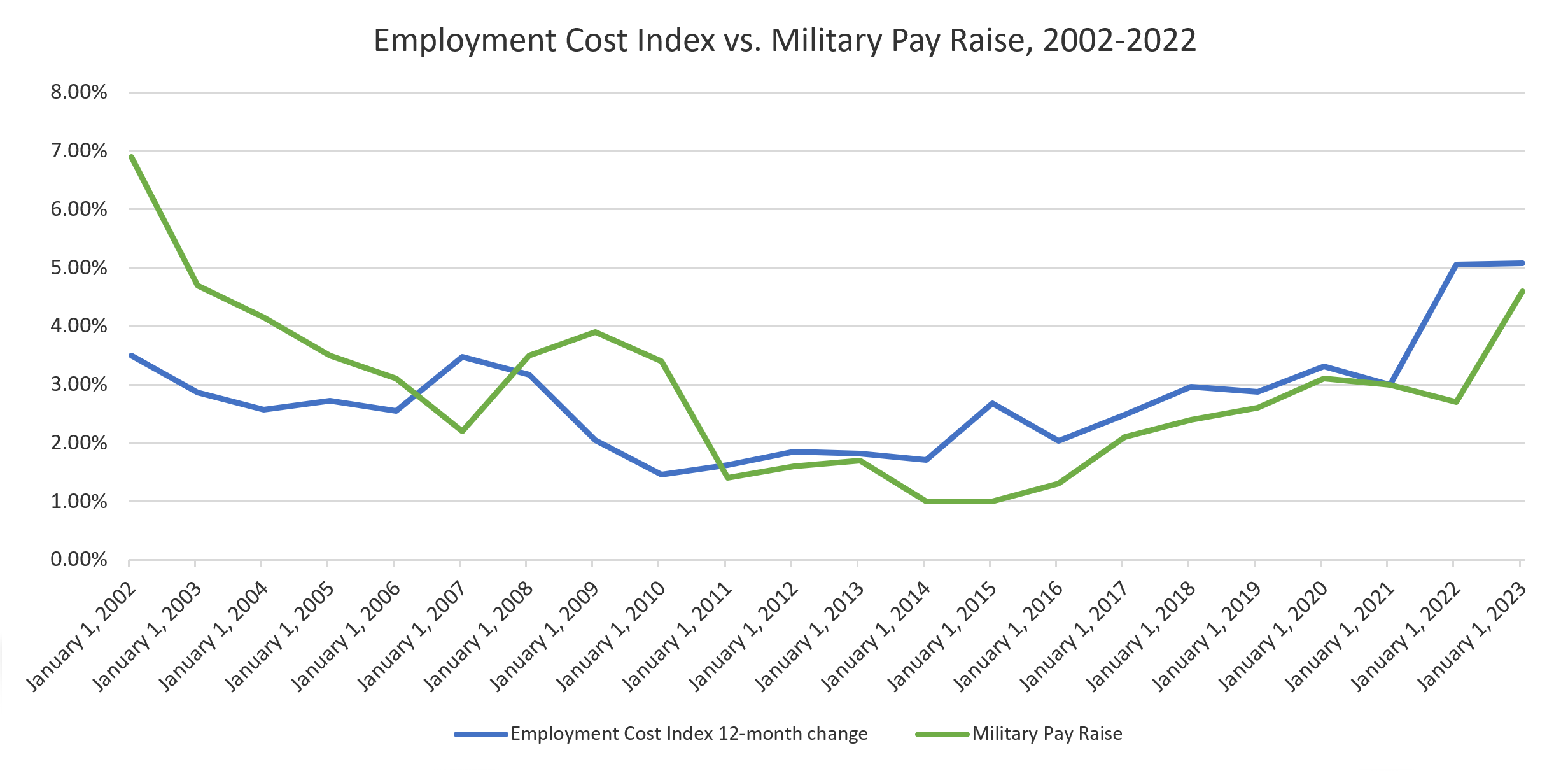Data Dive
Federal pay raises have lagged private sector for more than a decade, data shows
The 2023 federal pay raise was the largest civilian employees have seen since 2002, and the largest military raise since 2003. But it's still not keeping up with...
In January, federal employees received their largest raise in two decades. But even that 4.6% bump wasn’t enough to keep pace with rising wages in the private sector, according to the 2023 data the Bureau of Labor Statistics has published so far.
By Jan. 1, when the federal pay raise took effect, the Bureau of Labor Statistics’ Employment Cost Index was 5.1% higher than the same period a year before — meaning private sector salaries had grown by 5.1% since the last time federal employees saw a raise. A later BLS release, covering the time period through the end of March, showed private sector salaries, on average, were still growing faster than this year’s raise, with a 4.8% year-over-year increase in the ECI.
The size of federal raises in the context of national economic data has been more of a topic of discussion over the past couple of years because of high inflation, but according to a Federal News Network analysis of federal budget and ECI data, the federal-private disparity in pay increases has been a consistent feature of federal pay raises since 2011.
That’s the year when federal employees memorably received the first in a two-year string of zero percent pay raises. But according to BLS data, average private sector raises have been larger than the federal one in every year since then.

And although Congress, in some years, has been more generous with military pay raises than with those for civilian employees, there’s also been a disparity between private sector raises and military ones.

President Biden has proposed a 5.2% pay raise for both military and civilian employees in 2024. If Congress approves both raises, it could mark the first time since 2010 that federal raises outpace private sector ones — assuming the Employment Cost Index settles back toward historical levels.
Key legislative panels in both the House and Senate have already approved the military raise. But the civilian raise is likely to face trouble more trouble in the Republican-controlled House. That party has historically been less enthusiastic about civilian pay increases. Last month, the House Republican Study Committee endorsed a plan that would end across-the-board raises entirely and replace them with a “merit-based” pay system.
Copyright © 2025 Federal News Network. All rights reserved. This website is not intended for users located within the European Economic Area.
Jared Serbu is deputy editor of Federal News Network and reports on the Defense Department’s contracting, legislative, workforce and IT issues.
Follow @jserbuWFED






